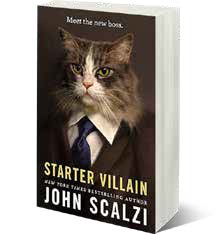Ruby Simon is not a sociopath. She tells you that straight up in Chapter 2 (and a few other places as well). Ruby is also a murderer three times over, and she will tell you that, too. But now she is accused of a fourth killing that she did not commit ó or so she says.Sascha Rothchildís debut novel ìBlood Sugarî takes a slightly different approach to murder by introducing us to a likable Yale graduate who has served up lethal doses of vigilante justice while rescuing animals and becoming a psychologist who helps people. There is no real mystery here since Ruby freely shares all the disturbing details of the deaths that happened in her proximity, as well as the events that led up to them. But she makes it clear that she does not dole out retribution at random. No, these people had it coming. And she feels no remorse for taking them out of the gene pool. ì(M)urder became another skill added to my toolbox,î Ruby says. ìAnd once I saw how effective a tool it was, I kept it handy.îRuby relates the bulk of her story from an interrogation room where she is being questioned following the death of her husband, Jason. Each question elicits a chunk of memories ranging from her (mostly) benign childhood to her wild, drug-laced teenage years, and from college to her successful therapy practice. The chapters of her life are fleshed out with vibrant imagery, clever insights and multi-dimensional secondary characters. Ruby describes a relatively normal existence (all those pesky deaths aside) filled with ups, downs, successes, self-doubt, empathy and compassion. But is Rubyís life actually that normal? Or is she just trying to make us believe that?The seemingly open-and-shut case of Jasonís untimely demise from a diabetic emergency is now receiving additional scrutiny thanks to Jasonís vengeful mother, who believes her son died at Rubyís hand and wants the local police to believe that, too. Diligent homicide detective Keith Jackson dredges up information going back to her childhood about three other people who died in Rubyís presence. He can also establish means, opportunity and motive (all fabricated, according to Ruby) for Jasonís alleged murder. Even as she fights to prove her innocence, Ruby is justifiably concerned about her future. ìFour (deaths) is beyond a pattern,î she says. ìFour is beyond bad luck or coincidence. Four means Iím at the center of it all ó these deaths orbiting around me like the planets around the sun.îAs the story careens to a plausible if somewhat anticlimactic conclusion, it is easy to believe that there can only be two possible outcomes: either Ruby killed her husband and will go to prison, or she is innocent and will walk free. But with a character like Ruby, thatís not the whole of it, is it? On several occasions that suggest she might be protesting too much, Ruby explains why she is not a sociopath. However, thereís that sticky little matter of her unapologetic involvement in three deaths. Is there enough evidence to file charges related to any of those three deaths? Or will the intrepid detective be forced to allow Ruby to literally get away with murder?The ending should leave readers satisfied. Nevertheless, when the story is considered as a whole, there is also room for lingering doubts about the veracity of the final verdict. Rubyís tale is told in first person point-of-view, so we really only know what she wants us to know. She tells us her truth, but does her version of events align with what actually happened?Author Sascha Rothchild is an acclaimed writer and Emmy-nominated screenwriter, so it is no surprise that she has created a compelling, suspenseful and engaging first novel. The writing is witty and tight, the dialogue sharp and realistic. Cliffhangers are skillfully embedded to keep readers turning the pages.Be forewarned, though, that the first chapter involves a childís death, which some may find disturbing. Those who keep going will find Ruby to be complex and flawed, yet charming and amiable despite her dark past. Readers may even find themselves cheering her on in the fight to clear her name, or empathizing with her grief after losing the man she loves like no other.But isnít that precisely what a sociopath would want us to do?






